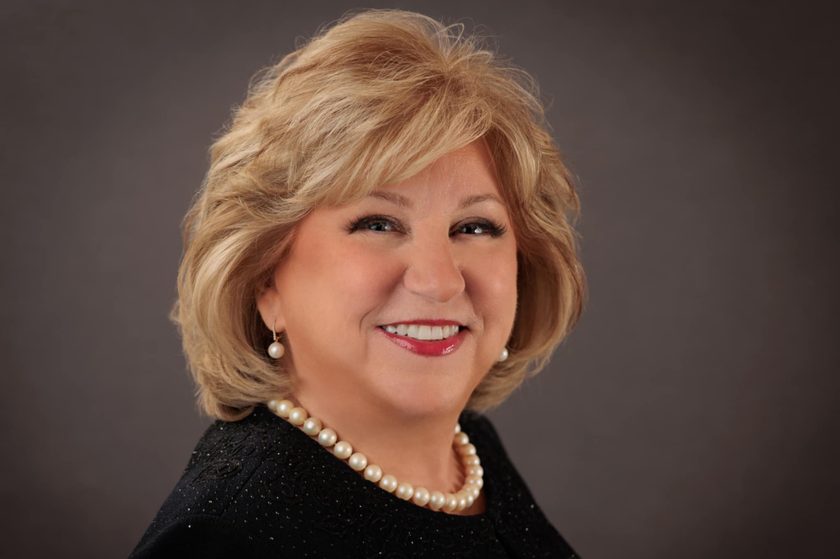- Sections :
- Crime & Public Safety
- Restaurants & Food
- Sports
- More
Categories
How to leave your small business in good hands
THE WOODLANDS, Texas -- There are 23 million small businesses in America, according to the Small Business Administration, accounting for 54 percent of U.S. sales and 55 percent of U.S. jobs. Small-business owners are always on the clock, pour their personal money into their businesses, and spend decades building lasting relationships with their customers and suppliers. These efforts have a real monetary value, but many entrepreneurs don't know how to get their money's worth out of their business and choose instead to just shut off the lights and walk away.
"Having a succession plan, an exit strategy, is just as key as having a business plan for your new and growing business," says Marc Berry of BOI Consulting, a financial services firm. "It's important to take the time to look 10 and 20 years down the line and think, 'how am I going to realize the value I'm building?' ”
For many companies, three years of preparations can turn their life's work into solid monetary value. Berry recommends outlaying a small amount of capital on professionally audited financials for a few years before retirement, allowing an outside firm to vouch for financial performance, expenses and assets and give a clear, confident fiscal picture to interested investors.
As an example, Berry describes a manufacturing client who had been in business since 1969. With two daughters whose families weren't interested in taking over the father's business, the entrepreneur began talking to Berry about retirement 6 or 7 years ago. He was looking to be compensated for the business he'd built, but didn't know where to start. BOI Consulting helped arrange audits of his financial statements to get his business ready for sale. Then the manufacturing sector began to sag in 2008-9, so the business owner buckled down for a few more years. Eventually, fortunes looked up and several suitors became interested. By selling the business to a private-equity group, the small businessman was able to walk away with $3 million.
"Many times he said, 'If this doesn't happen I'm going to put chains on the door and walk away. I'm 75, I've made my money,'" Berry explains. "Now he's able to do ranching and things with daughters and their families."
For those not quite ready to give up the working world, but looking for a little less pressure and an earlier payout, Berry describes a scenario that's "two bites of the apple." A business owner can sell a majority interest to an outside party for money today, while committing to stay on for several years to help show new management the ropes and cement customer relationships. Then, when the new majority ownership is on solid footing, the entrepreneur can sell his or her remaining stake and walk way with another chunk of money.
Many small business owners think their businesses are only good for the money they've already made, but Berry insists that even business relationships are worth real money. Often business owners in the service industry build their careers and companies on their personal reputations, and that business value goes with them into retirement. Accountants, lawyers and other service professionals can realize financial gain from their work by planning ahead and transitioning their clients to a junior partner or a new owner.
"Older tax professionals have built a nice book of business, but they're not always willing to transfer it," Berry says. "That's sad. They've built good relationships. It takes just a few years of planning, but they can transfer those relationships and walk away with a check of some sort. It's just the mentality."
"Having a succession plan, an exit strategy, is just as key as having a business plan for your new and growing business," says Marc Berry of BOI Consulting, a financial services firm. "It's important to take the time to look 10 and 20 years down the line and think, 'how am I going to realize the value I'm building?' ”
For many companies, three years of preparations can turn their life's work into solid monetary value. Berry recommends outlaying a small amount of capital on professionally audited financials for a few years before retirement, allowing an outside firm to vouch for financial performance, expenses and assets and give a clear, confident fiscal picture to interested investors.
As an example, Berry describes a manufacturing client who had been in business since 1969. With two daughters whose families weren't interested in taking over the father's business, the entrepreneur began talking to Berry about retirement 6 or 7 years ago. He was looking to be compensated for the business he'd built, but didn't know where to start. BOI Consulting helped arrange audits of his financial statements to get his business ready for sale. Then the manufacturing sector began to sag in 2008-9, so the business owner buckled down for a few more years. Eventually, fortunes looked up and several suitors became interested. By selling the business to a private-equity group, the small businessman was able to walk away with $3 million.
"Many times he said, 'If this doesn't happen I'm going to put chains on the door and walk away. I'm 75, I've made my money,'" Berry explains. "Now he's able to do ranching and things with daughters and their families."
For those not quite ready to give up the working world, but looking for a little less pressure and an earlier payout, Berry describes a scenario that's "two bites of the apple." A business owner can sell a majority interest to an outside party for money today, while committing to stay on for several years to help show new management the ropes and cement customer relationships. Then, when the new majority ownership is on solid footing, the entrepreneur can sell his or her remaining stake and walk way with another chunk of money.
Many small business owners think their businesses are only good for the money they've already made, but Berry insists that even business relationships are worth real money. Often business owners in the service industry build their careers and companies on their personal reputations, and that business value goes with them into retirement. Accountants, lawyers and other service professionals can realize financial gain from their work by planning ahead and transitioning their clients to a junior partner or a new owner.
"Older tax professionals have built a nice book of business, but they're not always willing to transfer it," Berry says. "That's sad. They've built good relationships. It takes just a few years of planning, but they can transfer those relationships and walk away with a check of some sort. It's just the mentality."
Comments •

















